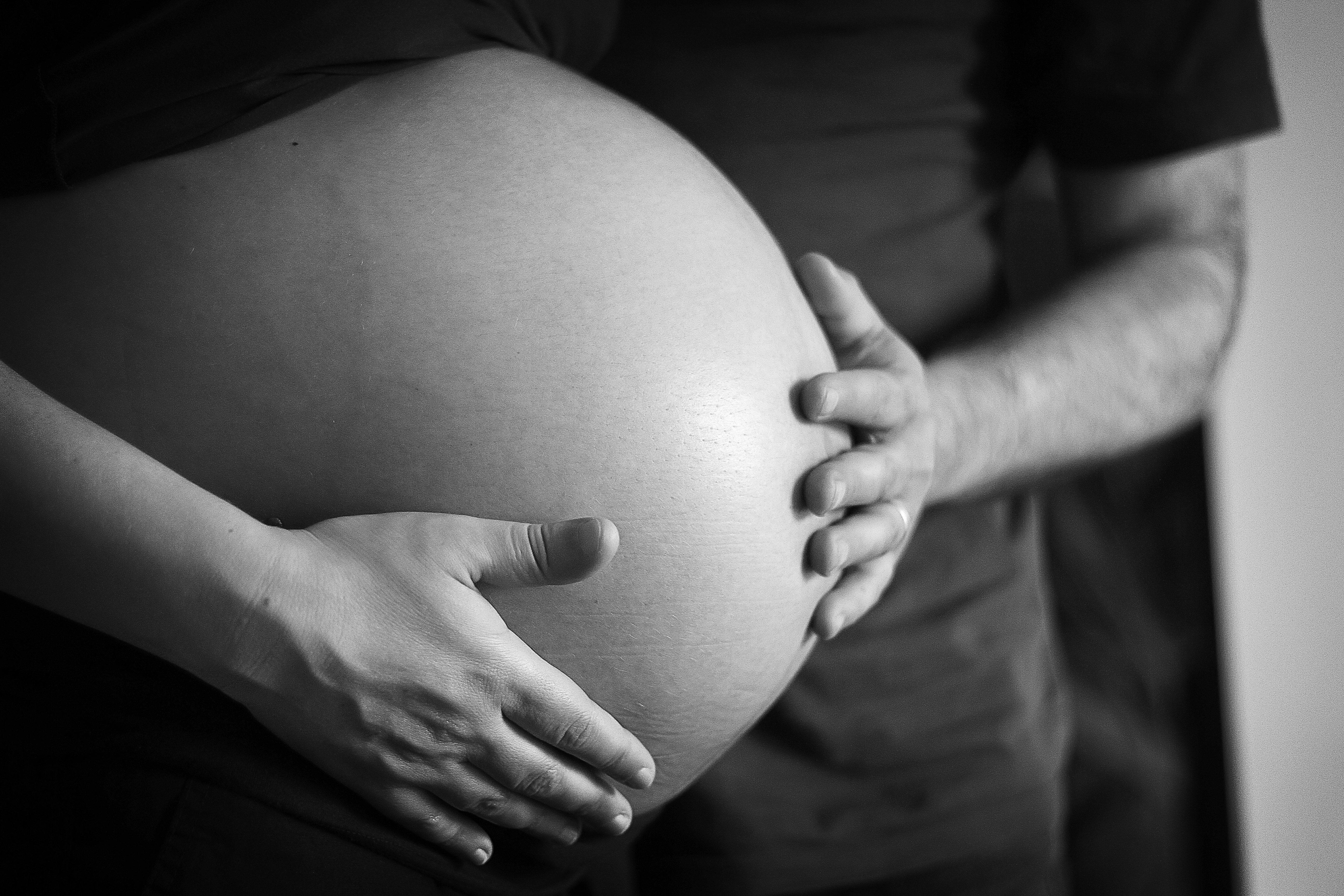
Sex during pregnancy can be described many different ways — awkward, exhilarating, exhausting. But no matter how you look at it, having sex while you're pregnant can also come with a lot of questions. One of the biggest concerns women may have is whether or not bleeding during pregnancy sex is normal. Even though there are plenty of reasons for spotting, post-sex blood can be especially concerning for pregnant women.
Is Pregnancy Sex Safe?
If you’re questioning the safety of pregnancy sex in general — especially knowing that it can cause spotting — that’s totally normal. Your body is experiencing something completely new.
“It is safe to continue to have sex while pregnant,” Dr. Neely Elisha, D.O., board-certified obstetrician at Inspira Health tells Romper. “As your pregnancy progresses and your abdomen grows, you may want to find a position that is more comfortable for you. Be open and talk to your partner so that you can both have an enjoyable experience.”
While you may have to make a few changes for comfort, having sex during pregnancy is safe for most women. However, Elisha says that there are some instances where your physician may advice against the act. “If your pregnancy is considered to be high-risk or your doctor has advised against it, you may need to avoid sexual activity,” she explains.
Conditions such as a low-lying placenta, an incompetent cervix, and some preterm birth risk factors may lead your doctor to advise caution or skip sex altogether. Another instance where you may need to speak with your doctor about whether or not sex is a viable option for you is if you have a history of bleeding during pregnancy.
What Causes Bleeding During Pregnancy Sex?
Not every instance of bleeding during or after pregnancy sex indicates a problem. Especially if it’s just spotting, chances are there is a reasonable explanation. But it’s completely understandable if you want to err on the side of caution, and it is always a good idea to be well informed about your health, especially during this time.
“Very early on in the pregnancy when the egg is implanting into the uterus, you may experience spotting or a small amount of bleeding — this is called implantation bleeding and is quite normal,” Elisha says.
Dr. Kim Langdon, an obstetrician, tells Romper that changes to the cervix during pregnancy can also contribute to spotting after sex. “The cervix becomes more vascular and soft due to hormonal changes and an increase in blood volume,” she explains. “If it is bumped during sexual intercourse, it can bleed.”
Depending on the timing and amount of the bleeding you experience, Langdon explains that — although unlikely — the bleeding could be a sign of something serious. “It could be from an inevitable miscarriage such that the blood in the uterus — from the failed pregnancy — gets jarred with intercourse and starts to leak out — but this is rare,” she says. “Sex does not cause a miscarriage, though.”
How Much Bleeding During Pregnancy Sex Is Normal?
“It is a problem if it persists or the bleeding is heavy — as in clots or lasting more than a few hours and is bright red,” Langdon says. “Brownish or pinkish spotting may take a few days to go away.”
If you do notice some spotting, wear a liner to keep an eye on how much bleeding you’re experiencing. Although it’s almost always normal to have a little spotting after sex, it’s also OK to call your doctor to double-check. A little reassurance can go a long way.
While cramping and spotting are normal after sex during pregnancy, you shouldn’t turn a blind eye to it if it does happen — especially if there’s a fair amount of blood. “If the bleeding is enough to saturate a pad, this can be a situation called placenta previa where the placenta is low and is partially or completely covering the cervix,” Elisha says. “This should be diagnosed with an ultrasound to determine the position of the placenta.”
Additionally, bleeding that’s accompanied by abdominal pain could be a sign of a few different things including a tear or separation of the placenta, Elisha notes. “In this situation, you may feel pain, but not see the bleeding as it is sometimes ‘hidden,’” she says. Depending on what stage of pregnancy you’re in, bleeding that’s more than just spotting could indicate a miscarriage or impending labor.
If you do experience intense cramping or profuse bleeding, experts recommend contacting your healthcare provider immediately to get checked out. While some spotting is likely not anything to worry about, the peace of mind that comes from knowing what’s actually happening to your body is worth it.
Experts:
Dr. Kim Langdon, OBGYN with Medzino
Dr. Neely Elisha, D.O., board-certified obstetrician at Inspira Health

0 comments:
Post a Comment